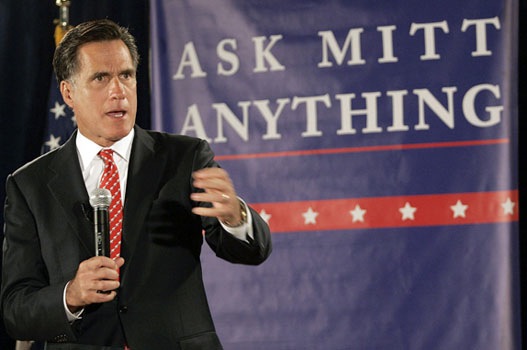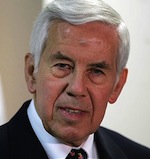 Some years ago, I knew a young Christian woman who had opportunities to sing in various church-related settings in a couple different states. Not once did her husband accompany her. He could have, but he didn’t. Not once. That really really bothered me. Still does.
Some years ago, I knew a young Christian woman who had opportunities to sing in various church-related settings in a couple different states. Not once did her husband accompany her. He could have, but he didn’t. Not once. That really really bothered me. Still does.
As a kid, my parents always tried to attend when I was doing something in public–high school tennis matches and basketball games, playing the piano for the school choir, performances at church. That always meant a lot to me. At tennis matches, my parents were often the only parents watching. It made me a little bit sad for my teammates.
Pam and I enjoy being part of each other’s professional worlds. When I speak in churches or conduct seminars at conferences, she is always there. I appreciate that. She takes vacation time to travel to my professional conferences and seminars, and I do the same for her.
I know all about Pam’s work environment and coworkers, and I’ve tried to learn enough about accounting to be conversant in her world. Likewise, Pam takes an interest in my world of work. I always appreciate Pam’s ready support, and her desire to be part of things that are important to me.
Everyone likes having the support of the persons closest to them.
Which brings me to Mitt Romney. I hope I’m not being unfair, but I’m genuinely bothered by something.
I’m a big fan of Ann Romney. She’s pretty, funny, engaging, articulate, and obviously just a very good person. Plus, she suffers from multiple sclerosis, and seems to have the best of it. Mitt is a straight-laced, goody-two-shoes, every-hair-in-place kind of guy. But Ann strikes me as a worthy counter-balance, the person in the family apt to keep things light, and maybe even a bit earthy at times (as she proved in that “unzipped” Baltimore radio interview). I’m guessing she’s a delightfully ornery person. She’s got that look about her.
Ann Romney also has a hobby which, this week, has taken her to the Olympics. She’s part owner of a horse which made the Olympic team in dressage–a silly sport, in my view, but a recognized sport nonetheless. She is now at the pinnacle of this sport, on the world stage, representing her country. This is a big deal for Ann Romney.
But Mitt is nowhere near. Rather, he’s in Nevada attending campaign events and fundraisers.
Fact is, Mitt Romney doesn’t want to be associated with his wife’s sport. He has tried to distance himself from dressage, to portray himself as totally uninterested in it. His campaign advisors apparently feel–with some justification–that being identified with a rich person’s sport could damage his carefully groomed image and cost him some votes. So he has given in. Ann must go it alone. His needs trump hers.
In an interview with NBC, Mitt Romney downplayed his interest in and knowledge of dressage. “It’s a big, exciting experience for my wife. I have to tell you, this is Ann’s sport. I’m not even sure which day the sport goes on. She will get the chance to see it. I will not be watching the event. I hope her horse does well. But just the honor of being here and representing our country and seeing the other Olympians is…something which I’m sure the people that are associated with this are looking forward to.”
The people associated with this. Meaning: not me. I don’t have anything to do with it.
You won’t even be watching? Your wife’s horse is competing for an Olympic medal. As you say, it’s a big, exciting experience for your wife. But you, basically, don’t know anything about it? That’s part of her life, and heaven forbid that her interests intrude upon your time? Is that what you’re saying, Mitt?
Am I the only person bothered by this?
I’m sure he’ll say there were “scheduling conflicts” which couldn’t be resolved. But he could have adjusted his schedule. We all know that.
He could have told his campaign advisors, “I know we’ll take some hits over dressage. But doggoneit, this is my wife. This sport is very important to her, and I’m going to be there with her to share in this once-in-a-lifetime event. She has stood besides me throughout my career, so I’m gonna do the same for her.”
I would have respected that.
Ann Romney has been the model business and political wife. She has raised his children and kept his home(s) while he was out making a fortune, running off to save the Olympics, campaigning for governor, creating a state healthcare system, and for the past eight years running for president. She has no doubt put her own desires on hold so she could support her husband in his various pursuits.
Now, when something very important to her comes along, she must once again take the back seat. His presidential ambitions come first. If there is a slight chance, according to hypersensitive campaign advisors, that standing beside Ann while her horse represents America in the Olympics might hurt his presidential bid, those concerns take precedence.
And so, Ann Romney is at the Olympics without her husband, her soul-mate. He is not there to share in the excitement–in her excitement. Because he very publicly doesn’t want to be connected with this thing she’s passionate about.
Maybe they’ve come to some kind of understanding. I don’t know. Running for president is certainly an extraordinary life circumstance. But I’m guessing that, all things considered, Ann Romney would much prefer that her husband was there to share this experience.
This in no way disqualifies Mitt Romney from being president. It doesn’t affect his ability to lead and fix the country. But as a man and a husband…well, fair or unfair, it bothers me.
1 Comment





 I’ve got this crazy personal philosophy which both Democrats and Republicans dislike. At least, I don’t hear anyone in the political world, of any persuasion, advancing my notions. Which means I must be ignorant, misinformed, out in left field, naive, or some combination of all of the above.
I’ve got this crazy personal philosophy which both Democrats and Republicans dislike. At least, I don’t hear anyone in the political world, of any persuasion, advancing my notions. Which means I must be ignorant, misinformed, out in left field, naive, or some combination of all of the above. Dick Lugar didn’t go quietly into the night. After losing last night’s primary for his Senate seat to a Tea Party guy, Lugar released a lengthy statement giving his thoughts about the polarization which engulfs Washington…and which his opponent, if elected in the fall, will deepen. It was a wonderful statement, filled with common sense counsel. Evan Bayh, in giving up his Senate seat two years ago, said much the same thing. Indiana, then, was blessed with two senators–one Republican, the other Democrat–who were committed to getting things done and to working with the Other Side. But they, Statesmen, have become dinosaurs.
Dick Lugar didn’t go quietly into the night. After losing last night’s primary for his Senate seat to a Tea Party guy, Lugar released a lengthy statement giving his thoughts about the polarization which engulfs Washington…and which his opponent, if elected in the fall, will deepen. It was a wonderful statement, filled with common sense counsel. Evan Bayh, in giving up his Senate seat two years ago, said much the same thing. Indiana, then, was blessed with two senators–one Republican, the other Democrat–who were committed to getting things done and to working with the Other Side. But they, Statesmen, have become dinosaurs.



